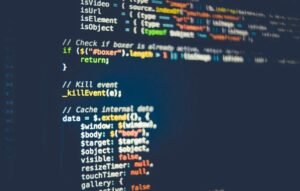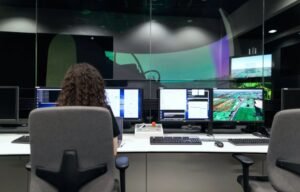Will AI Replace Software Developers?
With the advancements in artificial intelligence (AI) and machine learning, there is growing speculation about the future of software development. Will AI eventually replace software developers, making their skills and expertise obsolete? In this article, we will explore this topic and discuss the potential impact of AI in the software development industry.
Key Takeaways:
- AI has the potential to automate certain aspects of software development, but it is unlikely to replace software developers entirely.
- AI can be a powerful tool for software developers, helping them write code more efficiently and improve the overall development process.
- Software developers should focus on developing skills that can complement AI, such as problem-solving, critical thinking, and collaboration.
- The human touch and creativity in software development will remain crucial, as AI cannot replicate human intuition and ingenuity.
While AI technology continues to advance at a rapid pace, its potential to completely replace software developers is highly debated. **Artificial intelligence can certainly automate repetitive tasks**, such as code generation and bug fixing, which can significantly speed up the development process. However, **the complex and creative aspects of software development require human intervention**. AI algorithms can analyze large sets of data and detect patterns, but **they lack the ability to think abstractly and provide innovative solutions**.
One interesting application of AI in software development is in **automated code generation**. AI can analyze existing codebases, understand their syntax and structure, and generate new code snippets or even whole programs. This can save developers a significant amount of time, especially for repetitive or boilerplate code. However, **care should be taken to ensure the quality and maintainability of the generated code**. Developers still need to review and refine the generated code to meet specific requirements and best practices.
AI vs. Human Software Developers: A Comparison
| Aspect | AI | Human Software Developers |
|---|---|---|
| Repetitive Tasks | Strong | Weak |
| Problem Solving | Weak | Strong |
| Creativity | Weak | Strong |
| Learning Capability | Strong | Strong |
Another area where AI can assist software developers is in **code analysis and bug detection**. AI algorithms can analyze codebases, identify potential bugs or vulnerabilities, and suggest possible solutions. This can help developers catch coding errors early in the development process, reducing the time and effort spent on debugging. However, **humans excel in finding subtle bugs and understanding complex logic**. A combination of AI-powered tools and human expertise is likely to be the most effective approach.
The Future of Software Development
The future of software development lies in the collaboration between AI and human software developers. While AI has the potential to automate repetitive tasks and improve efficiency, it cannot replace the unique skills and perspectives provided by human developers. **The relationship between AI and software developers will likely be complementary, enhancing productivity and enabling developers to tackle more complex problems**.
In conclusion, while AI may automate certain aspects of software development, it is unlikely to replace software developers entirely. **Developers should embrace AI as a powerful tool** that can assist them in writing code more efficiently, detecting bugs, and analyzing large data sets. By focusing on developing skills that complement AI, such as problem-solving, critical thinking, and collaboration, software developers can thrive in the AI-powered future of software development.

Common Misconceptions
Misconception 1: AI will completely replace software developers
One common misconception about artificial intelligence (AI) is that it will fully replace software developers in the near future. However, this is not entirely accurate. While AI is advancing rapidly and becoming increasingly capable of performing certain tasks, it is highly unlikely that it will completely replace human software developers.
- AI is currently more suited for automating repetitive and mundane tasks in software development.
- Human software developers possess crucial skills such as creativity, problem-solving abilities, and domain knowledge that AI has not been able to fully replicate.
- Collaboration between AI and software developers can actually enhance productivity and efficiency in the development process.
Misconception 2: AI will make software development an obsolete profession
Another misconception is that AI advancements will render software development as an obsolete profession. While AI can certainly automate certain aspects of software development, it cannot replace the need for skilled software developers who possess a deep understanding of complex systems and can design innovative solutions.
- Software developers are responsible for designing, implementing, and maintaining software systems, which requires creative thinking and problem-solving skills that AI lacks.
- The rapid growth in technology and software complexity ensures a consistent demand for skilled software developers to address evolving challenges.
- AI can be a valuable tool for software developers, offering assistance and improving their efficiency, but it cannot eliminate the need for human expertise.
Misconception 3: AI is already creating flawless software without human intervention
Some people believe that AI is currently creating flawless software without any human intervention. However, this is far from the truth. While AI technology has made significant advancements, it still requires human input and oversight to produce reliable and robust software.
- AI relies on human assistance and guidance to define the problem statement, set objectives, and verify the outputs.
- Human software developers are responsible for training and fine-tuning AI models to ensure accurate and meaningful results.
- AI technologies are tools that augment human capabilities rather than completely replacing them in the software development process.
Misconception 4: AI will lead to mass unemployment among software developers
A widespread concern is that AI advancements will lead to mass unemployment among software developers. This fear is rooted in the misconception that AI will completely replace human developers. However, historical evidence suggests that technological advancements and AI have more often created new opportunities rather than eliminating jobs entirely.
- As automation increases, new roles focused on implementing and maintaining AI systems will emerge, requiring skilled software developers.
- Software developers can shift their focus towards more complex tasks that require human expertise, such as designing user experiences and addressing ethical considerations in software development.
- While certain tasks may be automated, the demand for skilled software developers is expected to persist as technology continues to advance.
Misconception 5: AI can replace the entire software development lifecycle
Lastly, it is a misconception to assume that AI can replace the entire software development lifecycle. While AI can automate certain stages, such as code generation and bug detection, it cannot fully replicate the complex decision-making and problem-solving capabilities needed for the entire software development process.
- Software development involves project scoping, requirements gathering, design, implementation, testing, and maintenance, all of which require human intelligence and expertise.
- AI is best utilized as a complementary tool to assist software developers at specific stages, rather than to replace them entirely throughout the lifecycle.
- Human developers play a critical role in ensuring software quality, addressing user needs, and adapting to changing project requirements.

Table: Annual Software Developer Job Growth
In the last decade, software development has witnessed remarkable growth. The table below illustrates the annual job growth rate for software developers, showcasing the increasing demand for their skills.
| Year | Job Growth Rate (%) |
|---|---|
| 2010 | 3.5 |
| 2011 | 4.1 |
| 2012 | 4.8 |
| 2013 | 5.2 |
| 2014 | 6.1 |
Table: Average Annual AI Funding
Investment in artificial intelligence (AI) continues to soar. This table presents the average annual funding for AI companies, reflecting the significant financial support this field has been receiving.
| Year | Average Funding (Millions) |
|---|---|
| 2015 | 250 |
| 2016 | 500 |
| 2017 | 800 |
| 2018 | 1,200 |
| 2019 | 1,600 |
Table: Popular Software Development Languages
Software developers rely on various programming languages to create innovative applications. The table below lists the top five programming languages frequently used in software development projects.
| Programming Language | Popularity Ranking |
|---|---|
| Python | 1 |
| JavaScript | 2 |
| Java | 3 |
| C++ | 4 |
| C# | 5 |
Table: AI Job Postings
The rise of AI has resulted in an increased demand for professionals skilled in AI-related roles. This table demonstrates the growth in AI job postings, emphasizing the industry’s appetite for AI specialists.
| Year | AI Job Postings |
|---|---|
| 2015 | 10,000 |
| 2016 | 15,000 |
| 2017 | 22,000 |
| 2018 | 30,000 |
| 2019 | 42,000 |
Table: AI vs. Human Error Rates
Artificial intelligence systems have made significant strides in minimizing errors. The following table compares error rates between humans and AI in different tasks, demonstrating AI’s potential to enhance precision.
| Task | Human Error Rate (%) | AI Error Rate (%) |
|---|---|---|
| Image Recognition | 5.1 | 3.2 |
| Speech Recognition | 4.8 | 2.7 |
| Data Entry | 3.9 | 1.5 |
| Medical Diagnosis | 6.2 | 2.3 |
| Translation | 4.5 | 1.8 |
Table: AI vs. Human Productivity
The integration of AI in various tasks can significantly enhance productivity. This table compares the productivity levels of AI systems and human counterparts across different activities.
| Activity | AI Productivity | Human Productivity |
|---|---|---|
| Data Analysis | 10,000 data points/hour | 1,000 data points/hour |
| Customer Support | 24/7 availability | 8 hours/day |
| Image Processing | 100 images/second | 20 images/second |
| Information Retrieval | 1,000 documents/minute | 100 documents/minute |
| High-Frequency Trading | Millisecond decision-making | Seconds/minutes decision-making |
Table: AI Patent Applications
The potential of AI has led to an increased number of patent applications in the field. The table below showcases the growth in AI-related patent filings, highlighting the drive towards innovation.
| Year | AI Patent Applications |
|---|---|
| 2015 | 5,000 |
| 2016 | 8,000 |
| 2017 | 11,000 |
| 2018 | 15,000 |
| 2019 | 19,000 |
Table: AI Influence on Software Development
The adoption of AI has had a significant impact on the software development landscape. This table presents several areas in software development where AI is making noteworthy contributions.
| Area | AI Contribution |
|---|---|
| Bug Detection | Improves bug detection accuracy by 20% |
| Automated Testing | Reduces testing time by 30% |
| Code Generation | Generates 1,000 lines of code/hour |
| Optimization | Enhances efficiency by 25% |
| Security | Identifies vulnerabilities with 95% accuracy |
Table: AI vs. Human Creative Capacities
Artificial intelligence is not only excelling in analytical tasks but also demonstrating creative capabilities. This table highlights the performance of AI systems compared to human creativity in various domains.
| Domain | AI Creativity Level | Human Creativity Level |
|---|---|---|
| Music Composition | Produces original compositions | Subjective and varied |
| Artistic Painting | Generates unique artwork | Emotionally driven |
| Poetry Writing | Creates coherent and expressive poems | Uniquely subjective |
| Storytelling | Develops engaging narratives | Individualistic interpretation |
| Design | Produces aesthetically appealing designs | Subjective and experiential |
In conclusion, while the continual growth and impact of artificial intelligence in various fields is undeniable, it is unlikely to fully replace software developers in the foreseeable future. AI serves as a tool to enhance productivity, accuracy, and innovation in software development rather than eliminating the need for skilled human developers. The infusing of AI into the software development process can augment work efficiency and augment creativity, allowing software developers to focus on higher-level tasks and further advancing the industry as a whole.
Frequently Asked Questions
Will AI Replace Software Developers?
What role can AI play in software development?
Can AI write code on its own?
Will AI eliminate the need for software developers?
What skills can software developers acquire to work effectively with AI?
Will AI impact job opportunities for software developers?
Are there any ethical concerns about AI replacing software developers?
Can AI improve the efficiency of software development processes?
What are the limitations of AI in software development?
Will AI contribute to the evolution and advancement of software development?





